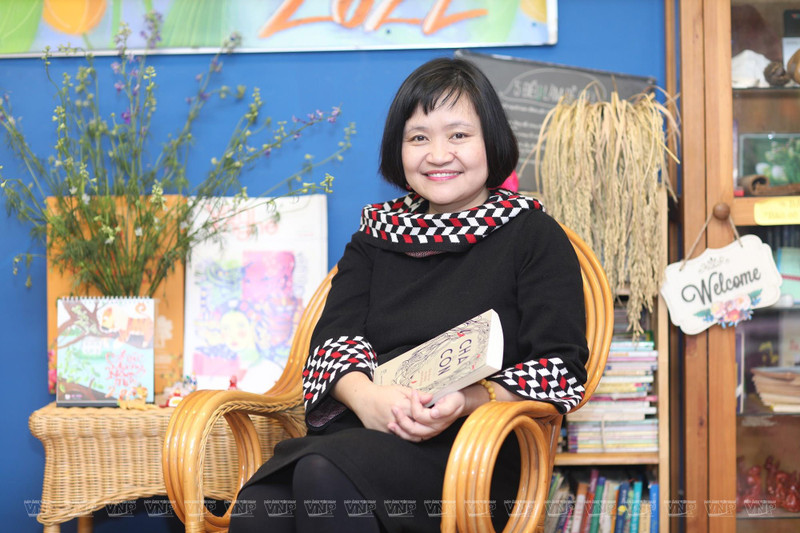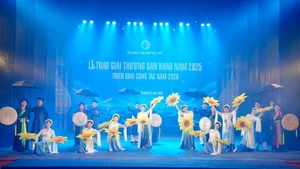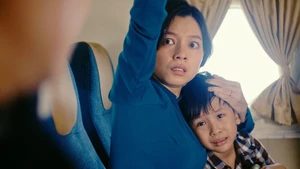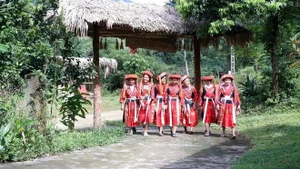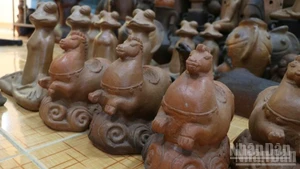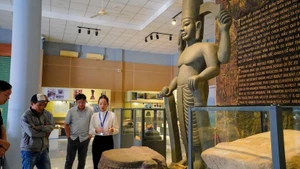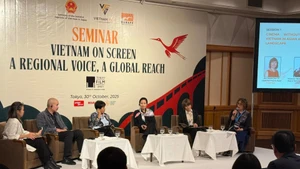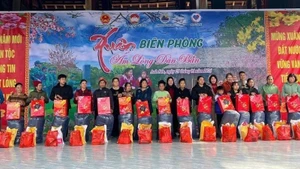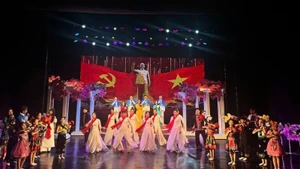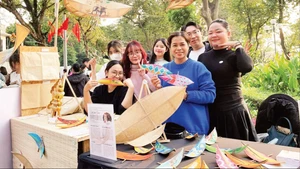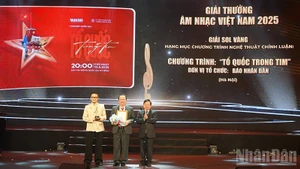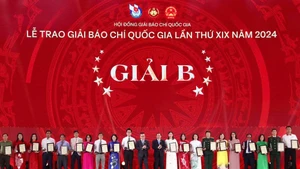How did you come with the idea for this book collection?
Dr. Nguyen Thuy Anh: I had nurtured the idea of making this book collection for quite a long time, more than 10 years or maybe even longer, since I was a student at Moscow State Pedagogical University and worked as a part time tutor of Vietnamese language for children of Overseas Vietnamese.
After I became a mother whose children are born and raised abroad, I was deeply worried that my children might not being able to communicate in Vietnamese to share their everyday stories.
Given this, I am very interested in teaching Vietnamese language for Vietnamese children abroad. I promised myself and then the overseas Vietnamese that I would definitely make a textbook to support the teaching and learning Vietnamese for those living abroad.
There are nearly 6 million Vietnamese people living in 130 countries and territories. Many families are also aware of teaching Vietnamese to their children to preserve their national cultural identity. However, they still face many difficulties, especially in the access of instructing documents on teaching Vietnamese language. How did you overcome those difficulties so that your book series could reach many children around the world and spread the love for the Vietnamese language?
The first thing before creating a book series or finding a method to teach Vietnamese abroad is that we must learn about the difficulties facing Overseas Vietnamese communities, teachers, parents, and learners.
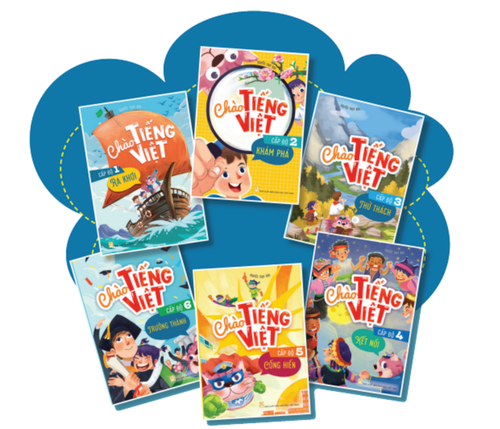 |
| The book collection ‘Chao Tieng Viet’ (Hello Vietnamese language) |
Therefore, over the past 10 years, I spent time to meet, took notes, and make observations to figure out the difficulties.
I have held that the first difficulty is that there is no community for practicing Vietnamese language.
Even in places with large numbers of Vietnamese people, children might spend more time speaking Vietnamese in the family, but when they go to school and integrate into the local culture, they no longer need to use Vietnamese.
Therefore, Vietnamese language is just used to make announcements and share information and simple stories among family members.
Second, my ‘Hello Vietnamese language’ book creates a children’s space rather than illustrating the country of Vietnam or the host country in which learners are living in. It is an imaginary space created by children during their adventures, including friendship stories and many other funny stories, helping children to explore Vietnamese in the most natural way.
Your ‘Hello Vietnamese language’ book series has been introduced in many countries. Can you share us some of your notable memories during your journey introducing the book to the world?
I remember one night I received a phone call from Budapest. A teacher on the phone enthusiastically shared about her joy, and that of the children learning Vietnamese, when receiving the book collection.
When I joined an organising team of a Vietnamese language camp in Paris, I saw a little girl diligently sat down to do the exercises in my book, especially those related to maths, numbers, and puzzles. Anytime she saw me, she urged me to challenge her with a quiz from the book.
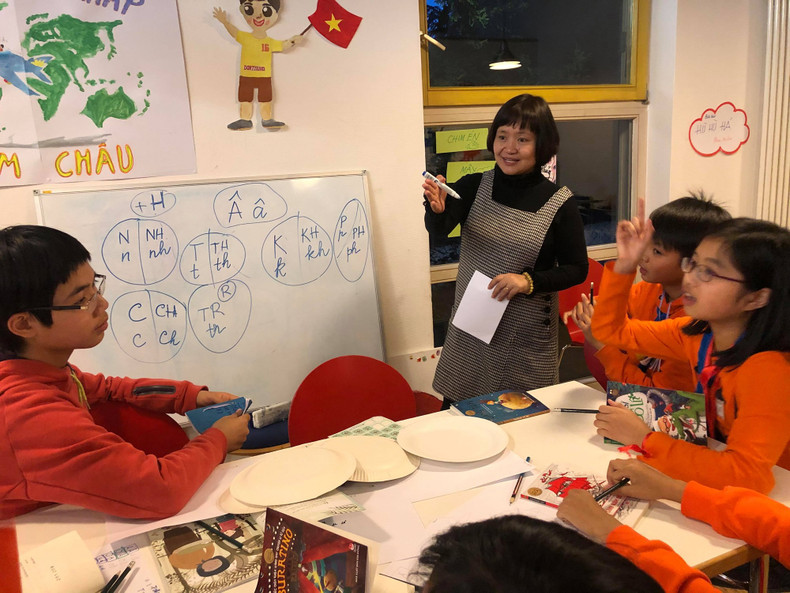 |
| Dr. Nguyen Thuy Anh teaching Vietnamese language to students in Germany. (Photo: Nguyen Thuy Anh’s Files) |
A friend of mine, who is living in Moscow, often films clips of mothers teaching their children following instructions from ‘Hello Vietnamese language’ book, and sends me these clips.
In Vietnam, many children are also excited with the book, because it features many different types of games and exercises that can draw great interests from young readers.
All these things are great source of motivation for me to continue to work more passionately. I know my path is not alone.
From your experience, what does the Vietnamese language mean to children born and raised abroad, in your opinion?
For children abroad, Vietnamese language is probably a relative whose presence they have not yet felt clearly, or a relative who can be referred to their root and origin only when the children grow up.
Many people find the approach to Vietnamese language and the learning of Vietnamese culture as a way to decode their souls, so that they can feel secure and live happily in this world.
In your opinion, what should we do to nurture the love for Vietnamese language among learners from a young age?
Love needs to be cultivated over time. It will gradually become deeper and more passionately from attachment in family, from lullabies, children’s books, and stories shared by relatives, friends, and teachers.
It all can start from the love and appreciation of Vietnamese language from the adults around the child. Adults often tell stories and read poems to children — these are the first steps to help children fell the rhythm and tones of Vietnamese language and develop a richer vocabulary, which will create a certain background for them to use Vietnamese at a higher and deeper level.
Thank you for the conversation!
